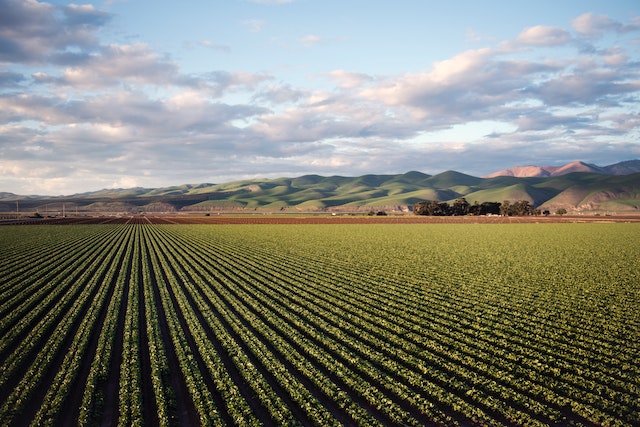The Canadian Farm Tax is an annual voluntary program that provides financial assistance to farmers and ranchers. It also supports family farming, which encourages sustainable growth and environmental stewardship. These farmers also contribute to the social fabric of rural Canada. That is why the CFA supports Private Bill C-208, which would exclude transfers to siblings who are not at arm’s length and to 18-year-olds.

Corporate tax rates are lower than personal tax rates
As the corporate tax rate for farm businesses is lower than the personal rate, there are advantages for farming businesses. Farmers can focus more on growing and investing instead of paying high tax rates. They are also able to deduct some expenses from their profits, which will help them grow their businesses. However, there are some disadvantages of corporate tax rates. For example, if you are a farmer and earn less than $100k per year, you will only be able to deduct a fraction of the total expenses.
If you’re a farmer in Alberta, you can defer your taxes. Your farm corporation will pay a small business tax rate of approximately 11%. This rate may vary from province to province. By deferring this income, farmers can retain as much as $10,000 per year. This money can be reinvested in the business or used to pay off debts.
The corporate tax rate is determined by the amount of income a business generates. For example, a farmer earning more than $200,000 a year will pay a lower rate. However, the rate for a farm business that earns less than $1 million per year will be higher than the general rate.
Corporate tax rates are lower than personal tax rates in Canada, and the corporate tax rate is still over 50% in the U.S. Compared to that, personal taxes are less important for Burger King, but property taxes are. However, Canada’s sales tax system is superior to the U.S., which has a more complicated tax system.
If you own a farm in Ontario, it is important to know your tax responsibilities. This is because every decision a farmer makes will have tax implications. Farmers pay taxes to all three levels of government, so the tax policies of all three levels affect farm businesses. Therefore, the OFA advocates for changes in tax policies. It is important to know your tax responsibilities and the implications of different policies.
In Canada, corporations pay federal and provincial taxes. In addition, each province has its own rules about corporate income tax. Companies that have a permanent establishment in more than one jurisdiction are required to file a Schedule 5 for their tax returns. The website for Alberta and Quebec provides bilingual information on tax issues and funds development.
Agricultural chemicals are taxed at a lower rate
The Canadian Farm Tax currently taxes agricultural chemicals at a lower rate than other commodities. This decrease is largely due to a change in the law. The new Farm Bill replaced the term “proposed” to “permit” in language describing different types of rights-of-way.
The 2018 Farm Bill included mandatory and discretionary changes to the ACEP program. The ACEP program provides tax breaks for certain agricultural chemicals that are used on agricultural land. The new legislation will make the program more efficient for producers. The ACEP-ALE plan is one of the new measures included in the Farm Bill.
Farm registration is a voluntary annual program
Canadian farm tax legislation has made farmland and outbuildings eligible for deferral. Generally, farmers pay 25 per cent less than the municipal residential rate. In order to participate, owners of eligible farmland and outbuildings must submit an application to the Canadian government. Once registered, farm owners are not required to pay provincial property taxes on the deferred property for 15 years.
In order to become eligible for farm registration, a farm must operate within the federal Income Tax Act and must have a management plan approved by the Minister of Agriculture. Agricultural producers who meet these criteria can register by submitting a registration form and paying a registration fee. Once registered, they will receive an RPAP number and have access to provincial programs.
Eligible farmland includes tracts of five acres or more that produce at least $2,000 in gross income each year. In addition, land must have produced at least one type of farm product in the previous two calendar years. Depending on the type of farmland, the applicant must prove that the land produced the specific type of farm products in at least one of the two previous calendar years.
To receive an FBR refund, applicants must submit an application to an accredited farm organization by May 31. FBR numbers will not expire, but if you are registered with an accredited farm organization, you can update your information online to ensure you get your refund. You can even make changes to your contact details online.
Eligible expenses are the costs of farming, excluding mandatory inventory adjustments and transactions with non-arm’s-length parties. Agricultural businesses are required to allocate eligible expenses to the calendar year. The government pays the credits based on the payment rate applicable during that calendar year.
Carbon tax
The federal carbon tax is coming for Canadian farmers, but there are some caveats. The carbon tax applies to fuel used in agricultural operations in Saskatchewan, Alberta, Manitoba, and Ontario. Farmers in these provinces must navigate different rules based on fuel type. Some fuels are exempted entirely, but many will have to bear the full cost.
Farmers are already feeling the pinch. Some are already looking to alternative fuel sources. Some are even looking at biomass-powered grain dryers as a solution. But they have to wait a few more years, until the carbon tax reaches $170 a tonne. Meanwhile, the federal government has said that the carbon tax will increase each year by $15 per tonne.
A recent study by the Pembina Institute said that the carbon tax on grain isn’t as high as farmers claim. The report found that farmers would receive an average rebate of $820, but the amount will vary by farm. The federal finance official estimates that the carbon tax will generate $100 million in rebates in fiscal 2021-22 and $122 million in rebates in fiscal 2023-24.
Carbon pricing support for farmers is a bipartisan issue. All federal parties support the idea. It is likely to be extended to other fuel uses in the future. But the best way to provide future support for agriculture is to provide the industry with a mechanism that preserves the full carbon tax incentive. There are three possible solutions, all of which have their advantages and disadvantages.
Bill C-234, introduced by Conservative MP Ben Lobb, would give relief to farmers. However, it has not yet received a second reading in the House of Commons. It was introduced to the House of Commons by the Conservative MP for Northumberland-Peterborough South. Bill C-234 would amend the Greenhouse Gas Pollution Pricing Act and exempt marketable natural gas from the carbon tax.
Agricultural producers have been concerned about soil protection and have implemented environmental practices on their farms. Many farms use trees to protect the soil and are energy efficient. Others are adopting adaptive grazing methods to raise the most number of animals on the smallest amount of land possible. However, they may have to look for better deals for fertilizer from outside the country. This option would have little impact on their carbon footprint, however.

